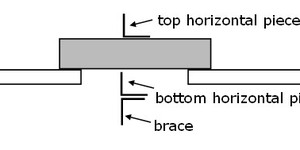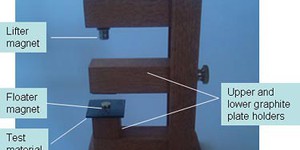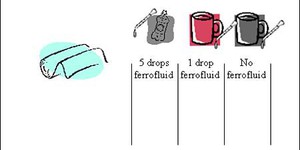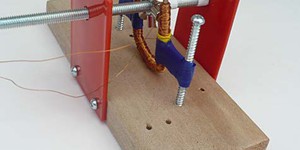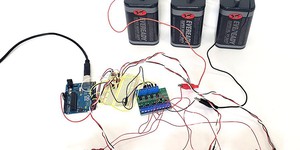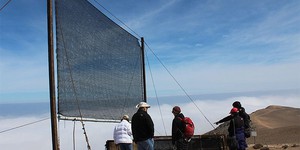Others Like “Spare-Change Circus: Walking Coins on a (Vertical!) 'High Wire'” (top 20 results)
|
Sorry, you don't get to use a jackhammer for this project, but you'll find out another way to break concrete (not to mention what makes it strongest).
Read more
Physicists sometimes study matter under extreme conditions. For example, think of the emptiness of interstellar space vs. the unimaginable crush of pressure at the center of a neutron star, or an object dipped in liquid nitrogen vs. the tiles on the space shuttle during re-entry. Here's an experiment on permanent magnets in "extreme kitchen" conditions that you can try at home.
Read more
Did you know that not all trains run on tracks? Some of the world's fastest trains are magnetic levitation trains (maglev). This means that the carriage of the train is suspended over the rails with no support, but only with magnetic fields! There is a physical explanation for magnetic levitation, and if you would like to learn more about magnetism and current, this is a science fair project that you must try!
Read more
What happens if you hold a magnet next to water? You might think that water is not affected by magnetism, but in fact, the water is slightly repelled. Believe it or not, if the magnet is strong enough, you can use this effect to levitate objects that contain water, including insects and even small frogs! In this science project, you will learn about diamagnetism. Materials that are repelled by both poles of a magnet are called diamagnetic. The magnets you will use are not strong enough to float…
Read more
The enormous task of cleaning up oil spills in oceans and seas has burdened industry, government, and environmentalists for decades. The cleanup is almost always difficult. It involves great amounts of time, resources, and money to remove the oil from the water, and the cleanup is often only partially successful. Today, however, scientists are coming to the rescue, developing a new technique that combines nanotechnology and magnetism. In this science project, you will test the proposed…
Read more
The electricity you use to power everyday devices is generated by electrical generators. These fascinating and powerful machines rely on magnets to function. Though they might seem extremely complicated, once you finish this science project, you will understand how, why, and when they generate electricity.
You will build your own generator, make small changes in how exactly the magnets are placed, and test when moving magnets generate electricity.
Read more
The human body has an impressive ability to heal itself after injury, but humans have nothing on planaria. Planaria have an amazing ability to regenerate. An entire animal can regenerate from just a fraction of the body! This project investigates the effect of magnetic field intensity on planarian regeneration.
Read more
If you like playing electric guitar, this could be a cool project for you. Have you ever wondered how an electric guitar works? In this project you'll wind one or more of your own electric guitar pickups and test them out in an inexpensive electric guitar. How will the sound change with the number of turns you use in the coil? Or with the strength of the magnets you use?
Read more
A mass driver uses electromagnetics to launch projectiles. In the future, such a device could launch payloads into space without the use of chemical rockets. This could lead to long-term cost savings when launching large amounts of material into space—for example, to construct a space station. In this project you will design and build your own working model mass driver as you learn some of the engineering principles behind how mass drivers operate.
Read more
Did you know that about 1 in 10 people worldwide do not have access to clean water? Collectively, girls and women worldwide spend an average of 200 million hours every day collecting the water they need from rivers, water holes, or lakes. What if there was a way to capture water from another source—like the air? In areas where there is a lot of fog, a device called a fog catcher makes this possible. Fog catchers use fine meshes to capture and collect water droplets from the foggy air.…
Read more
|
Explore Our Science Videos
Balloon Magic with Bernoulli's Principle
Build A Gumdrop Geodesic Dome!
Design and Launch Bottle Rockets


